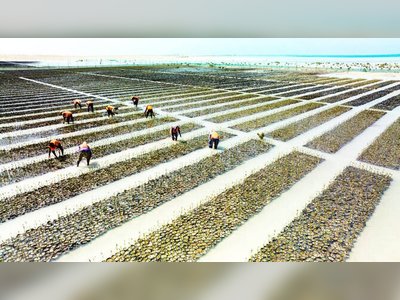
Togo's Ruling Family Tightens Grip on Power Amidst Growing Protests
In Lomé, the capital of Togo, a new constitution allowing President Faure Gnassingbé to transition into the role of all-powerful prime minister has triggered significant unrest. This move, enabling him to escape presidential term limits, has led to protests that are set to continue this Friday. Despite predictions, it is not the traditional political opposition but rather musicians, bloggers, and activists who have united frustrated young Togolese people in their discontent with a regime that has been in power for almost six decades under Gnassingbé's leadership or his father's before him. This longevity surpasses even long-serving leaders like Cameroon's President Paul Biya, who recently announced his intention to stand for an eighth successive term, and Gabon's father-and-son presidents, Omar Bongo and Ali Bongo. The new constitutional structure was devised by Gnassingbé to maintain his power while defusing accusations of dynastic rule, allowing him to no longer run for re-election in his own name. Critics argue that the new constitution essentially perpetuates the rule of the Gnassingbé dynasty through legal means, describing it as a form of 'legalist authoritarianism.' Despite international attention focused elsewhere and reluctance from fellow leaders in the Economic Community of West African States (ECOWAS) to challenge Togo due to concerns about potential domino effects after several military-run countries left the bloc, protests on the streets of Lomé have been intense. The rapper and regime critic Essowe Tchalla, known as 'Aamron,' was arrested and subsequently released without charge, prompting further demonstrations when a video emerged showing him apologizing for supposed psychological issues. The unrest intensified in late June with security forces clashing with youths who set up burning barricades, leading to random detentions and at least five deaths. Cultural figures like Aamron and jailed poet Honoré Sitsopé Sokpor have become central to the protest movement, connecting with young people in a way that traditional politics cannot. The hashtag #FaureMustGo has gained traction on social media, and a new campaign called M66 (standing for '6 June Movement') aims to address grievances against Gnassingbé's rule.











